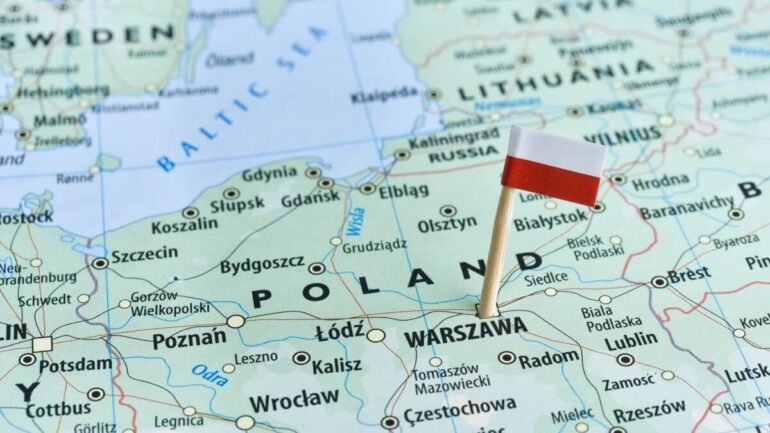TL;DR:
- Poland is investigating OpenAI’s ChatGPT for potential GDPR violations.
- A complaint alleges breaches in data processing and transparency.
- The unique case involves OpenAI, an AI giant located outside the EU.
- Privacy by design is a key focus of the investigation.
- Italy and Spain have also probed ChatGPT, with a taskforce studying AI regulation.
- OpenAI’s new office in Dublin shows its commitment to EU regulatory compliance.
Main AI News:
In the ever-evolving landscape of artificial intelligence, OpenAI’s ChatGPT finds itself under the regulatory microscope once again. This time, it’s Poland taking center stage, probing whether the AI chatbot adheres to European Union (EU) privacy laws.
Last month, a complaint was filed against ChatGPT and its creator, OpenAI, in Poland. The allegations levied against the company range from violations of the EU’s General Data Protection Regulation (GDPR) to questionable data processing practices. In a surprising move, the Polish authority publicly announced that it had initiated an investigation into the matter.
“The Office for Personal Data Protection [UODO] is investigating a complaint about ChatGPT, in which the complainant accuses the tool’s creator, OpenAI, of, among other things, processing data in an unlawful, unreliable manner, and the rules under which this is done are opaque,” the UODO stated in a press release.
This investigation comes with its own set of challenges, as OpenAI is headquartered outside the EU. Moreover, the technology behind ChatGPT, a large language model (LLM), is relatively novel, making it a unique case for examination.
Jan Nowak, president of the UODO, emphasized the gravity of the situation, noting that the case encompasses multiple violations of personal data protection. “The case concerns the violation of many provisions of the protection of personal data, so we will ask OpenAI to answer a number of questions in order to thoroughly conduct the administrative proceedings,” Nowak explained.
Jakub Groszkowski, Deputy President of the UODO, issued a stern warning in the authority’s press release. He emphasized that new technologies must operate within the confines of the legal framework and respect the GDPR’s principles, especially the fundamental concept of “privacy by design.”
The complaint, filed by privacy and security researcher Lukasz Olejnik, accuses OpenAI of numerous breaches of the EU regulation, ranging from lawful data processing to transparency, fairness, data access rights, and privacy by design. It centers around OpenAI’s response to Olejnik’s request to rectify incorrect personal data generated by ChatGPT, which the company claimed it couldn’t correct.
OpenAI’s practice of scraping the public internet for training data without individuals’ knowledge or consent has also drawn scrutiny. The company’s apparent inability to explain its data processing methods and correct inaccuracies when its AI generates false information about individuals are additional points of concern.
The EU mandates that personal data processing must have a lawful basis, adhere to transparency and fairness standards, and provide data access rights. Olejnik’s complaint scrutinizes OpenAI’s compliance with these dimensions, potentially shaping the future of generative AI.
In response to the UODO’s investigation, Olejnik stressed the importance of focusing on “privacy by design” and “data protection by design.” He hopes the inquiry will shed light on the inner workings of AI and LLM systems.
Notably, the Polish authority has been swift and transparent in its response to the complaint, adding to the growing regulatory challenges OpenAI faces in the EU. Italy’s Data Protection Authority previously intervened, resulting in a temporary suspension of ChatGPT in the country. Italy’s scrutiny continues, exploring concerns related to lawful data processing and data access rights.
Spain’s Data Protection Authority has also initiated an investigation, while a taskforce convened by the European Data Protection Board is working to establish consensus among the EU’s privacy watchdogs on how to regulate novel AI technologies. While the taskforce complements individual authorities’ investigations, the speed and nature of future enforcement actions remain uncertain.
In its press release, the UODO acknowledged the taskforce’s existence, underscoring the seriousness of the ChatGPT investigation. It emphasized that the complaint’s allegations are not the first doubts raised regarding ChatGPT’s compliance with European data protection and privacy rules.
Maciej Gawronski, representing Olejnik, highlighted the UODO’s commitment to addressing privacy, data protection, technology, and human rights issues. He expects the authority to adopt a reasonable approach to the proceedings, given Poland’s advanced IT landscape.
The outcome of the investigation may not be swift, as the UODO carefully monitors technological advancements and prioritizes open dialogue with OpenAI. OpenAI declined to comment on the Polish DPA’s investigation.
OpenAI is proactively adapting to the evolving regulatory environment in the EU by establishing an office in Dublin, Ireland. This move is aimed at streamlining its data protection compliance efforts. However, OpenAI is not yet considered “main established” in any EU Member State for GDPR purposes, which means that local data protection authorities retain the authority to investigate ChatGPT-related concerns.
As the regulatory landscape continues to evolve, it remains to be seen how these investigations will shape the future of AI, data protection, and privacy in Europe.
Conclusion:
The investigation into ChatGPT’s GDPR compliance by Polish authorities, along with previous probes in Italy and Spain, underscores the growing regulatory challenges in the AI industry. It highlights the need for AI companies to prioritize data protection and privacy by design in their technologies. OpenAI’s strategic move to establish an office in Dublin reflects its commitment to navigating the complex regulatory landscape in the European Union. This scrutiny will likely influence how AI technologies are developed and regulated in the future, emphasizing the importance of aligning with stringent data protection principles.

